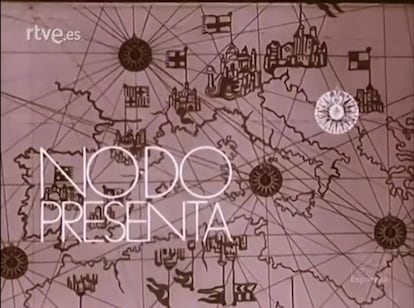Franco-era news and documentary archives get a new life online
State broadcaster RTVE provides free access to historic No-Do newsreels and features


Almost any Spaniard over the age of 40 can probably hum the opening signature tune of the No-Do newsreels that were shown in Spanish cinemas from 1942 to 1981.
The former state-controlled operation, which was closely associated with the Francisco Franco dictatorship, produced 4,018 films in all. Only seven have been lost.
No-Do produced 4,018 newsreels in all, and only seven have been lost
But No-Do – which stood for Noticias y documentales (news and documentaries) – was more than just a producer of news shorts. The agency also put together Imágenes, a light feature program, and looked after historical recordings, including the royal archive of King Alfonso XIII (1886-1931).
Now, state broadcaster RTVE and the Filmoteca Española Spanish film archive have provided free online access to a trove of recordings and documentaries produced by No-Do. The searchable database contains 6,573 files and 1,719 hours of video footage.
Video: A collection of No-Do newsreels (in Spanish).
“I think that this is the biggest public film archive in the entire world that is free to viewers,” said Chema Prado, Filmoteca director.
The project means scholars will no longer have to travel back and forth to Madrid to watch the historic videos for their research, he said.
Alberto de Prada, who heads RTVE’s documentary archive, added: “It has been a lot of work, but we are very satisfied with the final project.”
A vast collection
The total No-Do archive consists of 6,573 files.
Newsreels: 4,011 videos, or 670 hours of recordings.
Imágenes features: 1,211 videos (204 hours).
Sports: 88 videos (15 hours).
Documentaries: 217 black-and-white videos (67 hours)
Documentaries in color: 487 videos (96 hours).
Historic archive: 488 videos (96 hours).
Royal archive (Alfonso XIII): 71 videos (13 hours).
Later this month, the Filmoteca will be given a Fénix award in Mexico City for its contribution to Ibero-American cinema.
The 4,011 surviving No-Do newsreels had already been available online since 2013. But now the website contains 2,562 new files, and this figure is expected to expand in the coming months with the addition of more films to which the Filmoteca owns the rights.
One of the treasures that has been made available is Spain’s first major “talkie,” El misterio de la Puerta del Sol (The mystery of Puerta del Sol), which was filmed in 1929 and released in January 1930.
Browsing through the website, you can also find 71 videos covering the reign of King Alfonso XIII – the last Spanish monarch to reign before the Civil War – and a large collection of sports films from the 1970s.
Before No-Do closed its operations in 1981, all of its archives were transferred to Televisión Española (TVE), the state-owned television network. The following year, they were passed on to the Filmoteca.
But a lack of space led to TVE agreeing to preserve and manage the commercial rights of the images while the Filmoteca was given exclusive copyright.
Scholars will no longer have to travel back and forth to Madrid to watch the historic videos for their research
“This is how it was for 30 years. The archives were physically located in a building on Madrid’s Velázquez street,” De Prada recalled.
Last year, the films were returned to the Filmoteca, which had just inaugurated a new film preservation and restoration center.
A decision was finally made to bring all the images online. “But not on our website, as if it were our exclusive property,” explained De Prada.
“Because of the Culture Ministry’s small server, which is unable to support so much material, Televisión Española created the Filmoteca Española website, which contains all these films within RTVE’s main portal,” he said.
The technical problems of the server have been a constant source of complain for a film industry struggling to combat internet piracy: website monitors are unable to keep up with all the illegal connections to it.
Unlike autonomous bodies such as the Prado Museum and the National Library, the Filmoteca still depends on the Culture Ministry for funding and continues to rely on its server for its own website.
English version by Martin Delfín.
Tu suscripción se está usando en otro dispositivo
¿Quieres añadir otro usuario a tu suscripción?
Si continúas leyendo en este dispositivo, no se podrá leer en el otro.
FlechaTu suscripción se está usando en otro dispositivo y solo puedes acceder a EL PAÍS desde un dispositivo a la vez.
Si quieres compartir tu cuenta, cambia tu suscripción a la modalidad Premium, así podrás añadir otro usuario. Cada uno accederá con su propia cuenta de email, lo que os permitirá personalizar vuestra experiencia en EL PAÍS.
¿Tienes una suscripción de empresa? Accede aquí para contratar más cuentas.
En el caso de no saber quién está usando tu cuenta, te recomendamos cambiar tu contraseña aquí.
Si decides continuar compartiendo tu cuenta, este mensaje se mostrará en tu dispositivo y en el de la otra persona que está usando tu cuenta de forma indefinida, afectando a tu experiencia de lectura. Puedes consultar aquí los términos y condiciones de la suscripción digital.








































